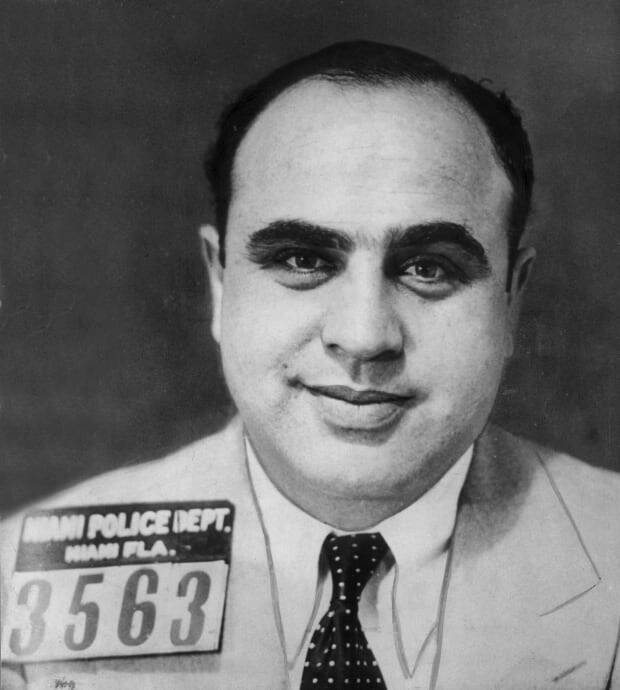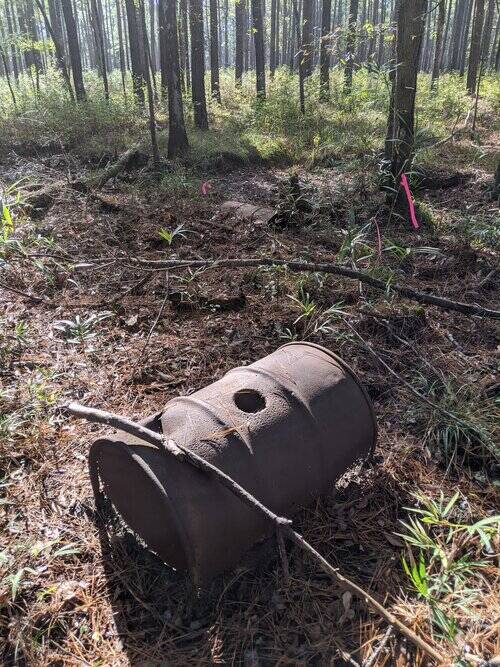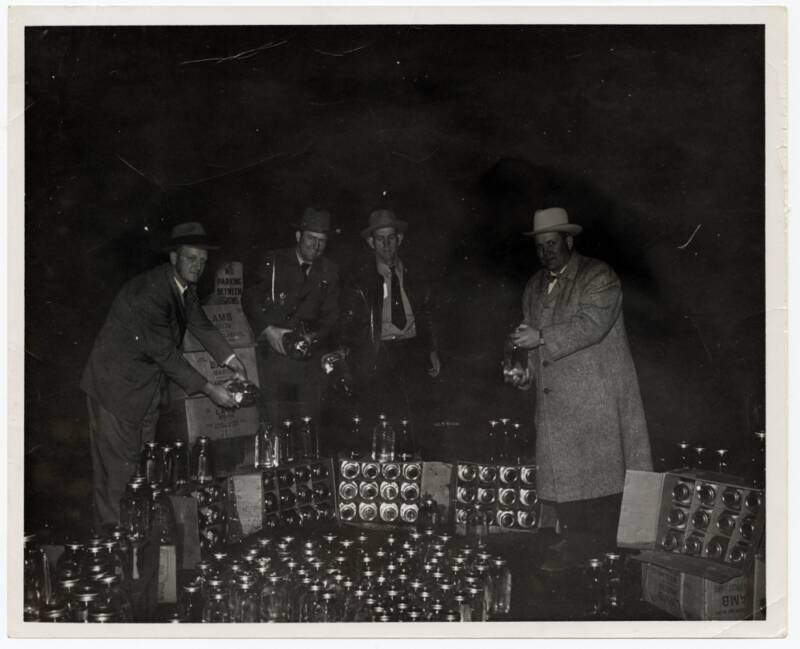During Prohibition, Hell Hole Swamp was one of the biggest suppliers of illegal booze to Chicago.

Wikimedia CommonsThe abandoned barrel likely belonged to one of Al Capone’s criminal associates.
Deep in “Bloody” Berkeley County, South Carolina, in a section of the Francis Marion National Forest called “Hell Hole Swamp,” archaeologists have unearthed a moonshine still linked to Al Capone.
Researchers from the University of Tennessee made the discovery, which included artifacts like a metal barrel, cinder blocks, a green garden hose, and some pieces of old metal. To a layman, it might seem like nothing but a pile of trash. But graduate student Katherine Parker knew she’d struck gold.
“Defunct or busted liquor stills are often mistaken for modern trash dumps,” Parker wrote on her website. But these finds can tell a compelling story — especially when an infamous gangster like Al Capone is involved.

Katherine ParkerThe recently discovered moonshine barrel could’ve easily been dismissed as trash.
The cinder blocks found by Parker and her team date back to the 1920s. The blocks likely supported a “submarine-style” liquor still — a metal container raised over a fire that moonshiners would’ve used to boil rye, barley, sugar, and water. Next, the moonshiners would’ve used the hose to draw out the alcohol vapors, which they would later condense into a liquid.
Most stills are located near creeks — which Parker and her team did not find. However, they did discover a 12-foot well. Parker postulated that the bootleggers could’ve pumped the well for the water they needed.
“Most of the information that we can find out about the stills themselves and the people that were there has to come from archaeology because there’s just not a real good paper trail,” said Jason Moser, a district archaeologist with the Francis Marion National Forest.
After all, illegal bootleggers didn’t leave many notes or records. They worked under the table. Thus, researchers have to study the objects they left behind in order to understand them. Other items often found at abandoned stills include things like nails, buckets, clothing, and spent ammunition.
Notably, the evidence of an old still in Hell Hole Swamp was found near the property of Benjamin Villeponteaux — an associate of Al Capone. Villeponteaux is believed to have worked with Public Enemy No. 1 to produce moonshine during Prohibition.
Villeponteaux was uniquely well-positioned to produce moonshine. He belonged to an old Berkeley County family — which meant he could pay off authorities to ignore his operation. And during Prohibition, Hell Hole Swamp was a key location for some of the top producers of illegal liquor.
Bootleggers like Villeponteaux would pour moonshine into mason jars. Then, associates would distribute it far and wide by boxcar. Their whiskey was consumed by people in Chicago — as well as other major cities around the country. Some locals indulged in the booze as well.
“Of course we continued to drink during Prohibition,” remembered one local in nearby Charleston. “I don’t know where Daddy bought the liquor. It was just delivered to the back porch every morning with the milk.”
Reportedly, Capone wasn’t satisfied with merely receiving shipments of bootlegged alcohol. According to local lore, he made several trips to Hell Hole Swamp to check in on the production himself. The gangster had a reputation for swooping into town in a fancy limo with “wads of money” to “take care of business.”
But all the riches aside, bootlegging was a dangerous business. Berkeley County became known as “Bloody” Berkeley County for the frequent, violent clashes between rival bootleggers. The governor — who was in favor of Prohibition — denounced Berkeley County as “a festering sore.”

Wikimedia CommonsAuthorities show off the illegal liquor they confiscated during Prohibition in North Carolina.
One of “Bloody” Berkeley County’s victims was Villeponteaux. He died in a shootout with a rival gang called the McKnight family in 1926.
However, it’s likely that Villeponteaux’s stills outlived him. The McKnight gang — and others — may have continued to operate them after his death.
Plus, old habits died hard in Hell Hole Swamp. Even after Prohibition ended in 1933, many bootleggers still produced illegal moonshine. South Carolina had one of America’s highest state taxes on legal liquor — $4 a gallon — and people knew how to produce and buy illegal alcohol more cheaply.
Parker and her team are optimistic that further examination of the Hell Hole Swamp site can help paint a better picture of bootleggers like Villeponteaux.
“We’re hopeful that if this is possibly like a camp area where people who are running that still would be hanging out while it works, then maybe we might find some more personal items like buttons or comb pieces and things like that,” Parker said. Such items could probably shed more light on the business that once took place in the area.
After all, Parker noted, people in the area love local lore — and the “dark glory” of moonshiners in the South perfectly fits that description.
After reading about the abandoned moonshine linked to Al Capone, check out these 25 astounding Al Capone facts. Then, learn all about the death of Al Capone.





